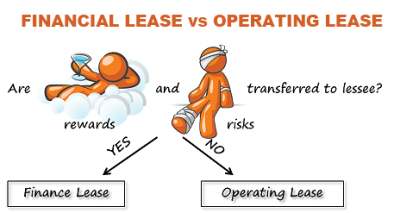Table of ContentsUnknown Facts About What Is A Finance Bond6 Easy Facts About Healthcare Finance What Is Municipal Bond DescribedTop Guidelines Of In Order To Finance A New Toll BridgeNot known Details About What Is A Bond Personal Finance The Main Principles Of How Is A Bond Represented In The Yahoo Finance
When TIPS do mature, investors get either the changed principal or the initial principal, whichever is higher. TIPS are offered with five, 10, and 20-year terms. are most likely a few of the most uninteresting gifts out there, however it can't injure to comprehend how they work. You can redeem your cost savings bonds after a year of holding them, as much as 30 years.
Treasury: earn a fixed-rate of interest (currently 3.4%) and can be redeemed after a year (though you lose 3 months interest if you hold them less than 5 years), but can be held for as much as thirty years. When you redeem the bond, you'll collect the interest accumulated plus the amount you paid for the bond.
If they're acquired online, they're purchased at stated value, but can be purchased for any amount starting at $25. are similar to EE cost savings bonds, other than that they're indexed for inflation every six months. These are constantly offered at face worth, no matter whether you buy paper bond certificates or you purchase them electronically.
They're issued by government-sponsored business. Due to the fact that these companies are chartered and regulated in part by the government, the bonds they release are perceived to be more secure than corporate bonds. They are not, however, backed by the "full faith and credit" of the U.S. federal government like Treasurys, which would make them virtually risk-free.
Municipals aren't based on federal taxes, and if you live where the bonds are issued, they may likewise be exempt from state taxes. Some community bonds are more credit-worthy than others, though some munis are insured. If the company defaults, the insurance provider will have to cover the tab. are bonds released by business.
The Basic Principles Of Why Invest In A Bond Yahoo Finance
is another word for the rates of interest paid by a bond. For circumstances, a $1,000 bond with a 6% coupon will pay $60 a year. The word coupon is utilized due to the fact that some bonds really had a paper coupon connected to them, which might be redeemed for the payment. is likewise referred to as the face value of a bond, this is the amount a shareholder receives when the bond matures.
is a measure of a bond rate's sensitivity to a change in rates of interest, determined in years. Bonds with longer durations are more conscious rates of interest changes. If you're in a bond with a period of 10 years and rates increase 1%, you'll see a 10% decline in the bond's cost.
Bonds are released by federal, state, and city governments; companies of the U.S. federal government; and corporations. There are 3 basic types of bonds: U.S. Treasury, local, and corporate. Bonds, expenses, and notes released by the U.S. government are generally called "Treasuries" and are the first-rate securities readily available. They are released by the U.S.
All treasury securities are liquid and traded on the secondary market. They are differentiated by their maturity dates, which vary from thirty days to 30 years. One major benefit of Treasuries is that the interest earned is exempt from state and regional taxes. Treasuries are backed by the full faith and credit of the U.S.
Treasury expenses (T-bills) are short-term securities that grow in less than one year. They are cost a discount rate from their face worth and hence don't pay interest prior to maturity. Treasury notes (T-notes) earn a fixed rate of interest http://sergiotqnv407.lowescouponn.com/h1-style-clear-both-id-content-section-0-the-greatest-guide-to-in-order-to-finance-a-new-toll-bridge-h1 every six months and have maturities ranging from 1 to 10 years.
Not known Details About How To Find The Beta For A Bond Finance
government bond market and is likewise utilized as a criteria by the home loan market. Treasury bonds (T-bonds) have maturities varying from 10 to 30 years. Like T-notes, they also have a coupon payment every 6 months. Treasury Inflation-Protected Securities (SUGGESTIONS) are inflation-indexed bonds. The principal value of SUGGESTIONS is adjusted by modifications in the Customer Price Index - in order to finance a new toll bridge.
In addition to these Treasury securities, specific federal companies also provide bonds. The Federal Government National Mortgage Association (Ginnie Mae), the Federal National Home Loan Association (Fannie Mae), and the Federal Home Mortgage Home Mortgage Corp. (Freddie Mac) concern bonds for particular purposes, mainly associated to funding home purchases - what is principle in finance bond. These bonds are likewise backed by the complete faith and credit of the U.S.
Municipal bonds (" munis") are released by state and regional governments to fund the building of schools, highways, housing, sewage system systems, and other crucial public projects. These bonds tend to be exempt from federal earnings tax and, in many cases, from state and local taxes for financiers who live in the jurisdiction where the bond is released.
Note that, in some states, investors will have to pay state earnings tax if they acquire shares of a municipal mutual fund that purchases bonds released by states other than the one in which they pay taxes. In addition, although some local bonds in the fund might not go through ordinary income tax, they may go through federal, state, and local alternative minimum tax, if a financier offers a tax-exempt bond fund at a profit, there are capital gains taxes to consider.
General commitment bonds are secured by the complete faith and credit of the provider and supported by the provider's taxing power. Earnings bonds are paid back utilizing income generated by the individual task the bond was issued to fund. Corporations may release bonds to fund a large capital expense or a company expansion.
What Is Bond Valuation In Finance - The Facts

The value alicia mcvey and risk associated with corporate bonds depend in large part on the monetary outlook and reputation of the business issuing the bond. Bonds released by business with low credit quality are high-yield bonds, also called scrap bonds. Investments in high-yield bonds offer different benefits and threats than investing in investment-grade securities, including higher volatility, higher credit danger, and the more speculative nature of the provider.
This type of bond (also called an "accrual bond") does not make discount coupon payments but is released at a steep discount rate. The bond is redeemed for its amount upon maturity. Zero-coupon bonds tend to vary in rate more than voucher bonds. They can be released by the U.S. Treasury, corporations, and state and city government entities and generally have long maturity dates.
As interest rates increase, bond rates normally fall. The return and principal worth of bonds vary with modifications in market conditions. If not held to maturity, bonds might be worth more or less than their initial expense. Bond funds go through the very same inflation, interest rate, and credit risks associated with their hidden bonds.
Mutual funds are offered by prospectus. Please think about the financial investment objectives, risks, charges, and costs carefully before investing. The prospectus, which includes this and other details about the investment firm, can be acquired from your financial expert. Make sure to check out the prospectus thoroughly prior to choosing whether to invest. The info in this newsletter is not meant as tax, legal, financial investment, or retirement recommendations or suggestions, and it might not be relied on for the purpose of preventing any federal tax penalties.
The material is derived from sources believed to be precise. Neither the details presented nor any opinion revealed constitutes a solicitation for the purchase or sale of any security. This product was composed and prepared by Broadridge Advisor Solutions. 2020 Broadridge Financier Interaction Solutions, Inc.
How To Find Bond Price On Yahoo Finance for Beginners
A bond is a contract between 2 parties. Business or federal governments concern bonds due to the fact that they need to borrow big quantities of money. They release bonds and financiers purchase them (consequently providing the individuals who released the bond cash). Bonds have a maturity date. This indicates that at some time, the bond issuer has to pay back the cash to the investors.

Bonds are normally traded through brokers and belong to a monetary instrument group called Fixed Income. Banks and monetary organizations offer loans on various terms against the security of properties. Bond certificate for the state of South Carolina released in 1873 under the state's Debt consolidation Act. Railroad commitment of the Moscow-Kiev-Voronezh railroad company, printed in Russian, Dutch and German.
Editor's Note: You can find our total library of complimentary investing posts here. If you have ever talked with a financial advisor or read a general investing article, you understand that most consultants think you ought to put part of your money into bonds. However why?Financial consultants enjoy bonds due to the fact that they are conservative, trusted investments that offer stability to any portfolio.